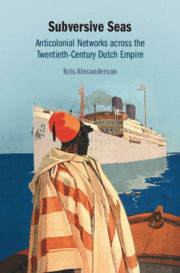Conclusion
Oceanic Decolonization and Cultural Amnesia in the Twenty-First Century
Published online by Cambridge University Press: 12 April 2019
Summary
- Type
- Chapter
- Information
- Subversive SeasAnticolonial Networks across the Twentieth-Century Dutch Empire, pp. 246 - 256Publisher: Cambridge University PressPrint publication year: 2019



